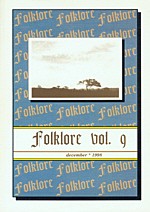Witchcraft Denunciations in Late Imperial Russia: Peasant Reactions to the Koldun
Witchcraft Denunciations in Late Imperial Russia: Peasant Reactions to the Koldun
Author(s): Daniel C. RyanSubject(s): Customs / Folklore
Published by: Eesti Kirjandusmuuseum
Summary/Abstract: The majority of peasants in late nineteenth century Russia believed in the power of magic and its ability to affect their lives in both beneficial and harmful ways. An important aspect of this outlook was witchcraft, which can be defined as “the attribution of misfortune to occult human agency” (Thomas 1971: 436). Nearly any personal misfortune, including impotence, illness, death, crop failure, and the death of livestock, could be construed as an act of witchcraft, or “spoiling” (porcha). Peasants, however, could attempt to defend themselves against witchcraft by turning to magical practitioners who lived in and around their villages.
Journal: Folklore: Electronic Journal of Folklore
- Issue Year: 1998
- Issue No: 9
- Page Range: 14-50
- Page Count: 10
- Language: English

